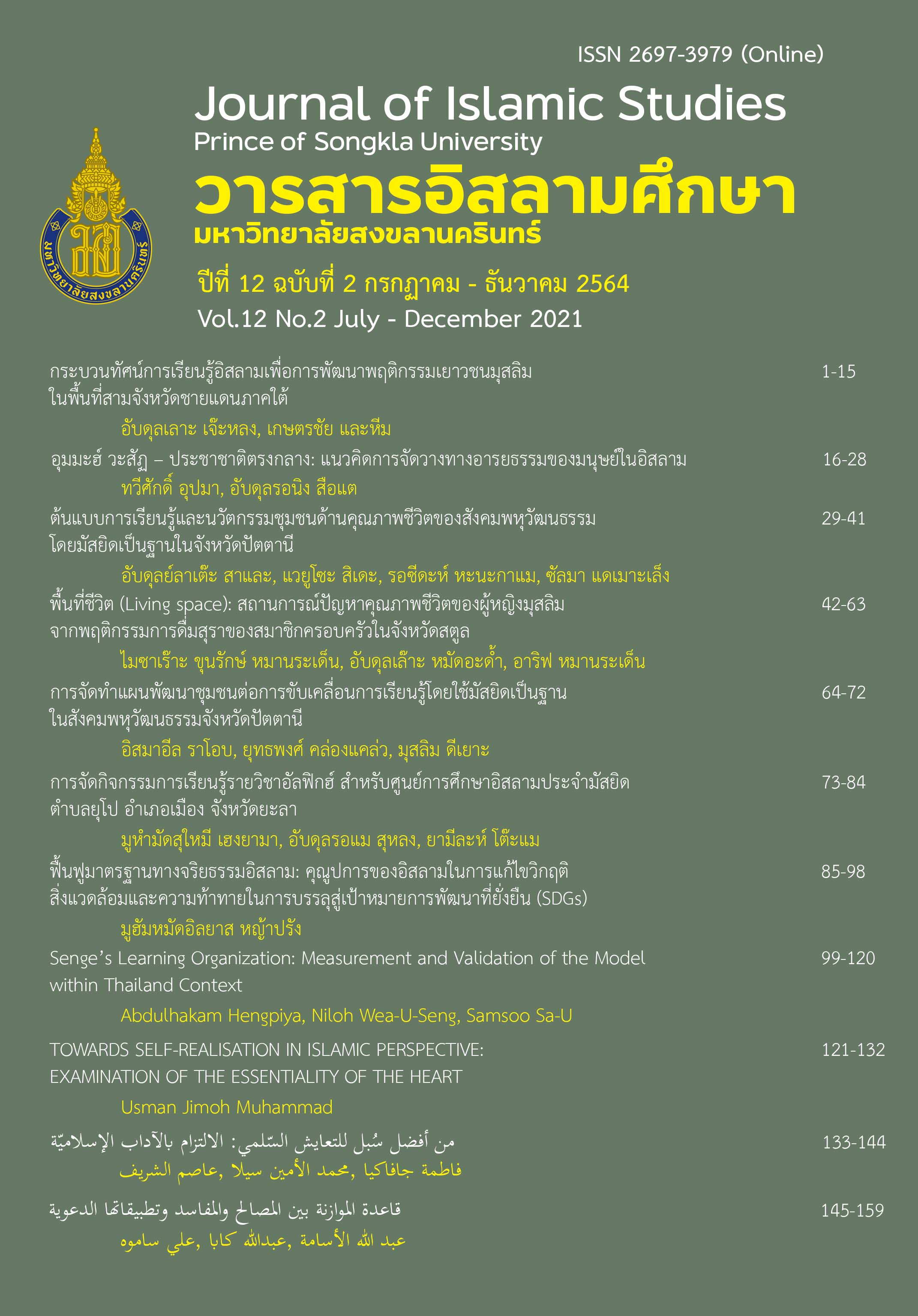One of the best way for Peaceful coexistence: Islamic Etiquette
Keywords:
Peaceful co-existence, Islamic etiquette, Quran, SunnahAbstract
Objective The research aims to clarify the beautiful of Islamic religion, its advantage, and tolerance in relationship between one nation, Islamic religion deals with all the human being Muslim and non-Muslim the same equally, the purpose of Islamic religion is security, understanding and safely between the people.
Methodology The research depends on the inductive approach, which is to follow the legal texts through the Quran and the Sunnah. And to analyse those texts in the light the Quran and Sunnah of Prophet.
Research Finding Among the results our Prophet Muhammad peace upon him, lived in Madinah with Jews, he died and his clothe was pledged to a Jew, Islamic etiquette might change an enemy to be beloved, Allah wants from human being to live in peace and understanding, and Islamic religion is flexible.
Applications The current research contributes to clarifying the relationship between Islam and good behaviour, because there are many people they are praying but they don’t follow Islamic laws in dealing with others, Islam is not only worshiping but also need good behaviour.
Keywords: Peaceful co-existence, Islamic etiquette, Quran, Sunnah.
References
Ibrahim Mustapha, Ahmad Jiyat, Hamid Abdul Ghadir, Muhammad Al-nagir. (1972). Almu'ajam Alwaseeth. Al Shorouk International Library.
Ibn Abi al-Arabi, Muhammad bin Ali Al-Hanafi. (1997). Sharihu Al-aghida Al-thahawi. Muasasat Alrisala.
Ibn Ashur, Muhammad Al-thahir bin Muhammad. (1984). Al-tahri wa tanwir. Dar al-tunisia.
Ibn Atiyat, Abu Muhammd Abdul Haq bin Abul Rahman. (1422H). Al-Muharar al-wagiz fi Tafsir Al kitab al-Aziz. Dar al-kutub al-emilia.
Ibn Manther, Muhammad bin Mukrim. (1997). Lissan Al-Arab. Dar Sader.
Umar, Ahmad Moctar Abdul Hamid. (2008). Mu'ujiam Al-lugat Al-Arabiah Al-Muasirah. Alam Al Kotob.
Al-Asfahani, Abu Al-Qhasim bin Muhammad. (1999). Tafsir Al-Ragib. Faculty Of Arts,Tanta University.
Al-bagawi, Abu Muhammad Al-Hussein bin Mas'ood. (1983). Sharih Al-Sunnah. Al-Maktab al-Islami.
Al-Razi, Ahmad bin Faris bin Zakaria. (1979). Mu'ajim Magais Al-lugat. Dar Al Fikr.
Al-suyuti, Abdul Rahman bin Abi Bakir. (n.d). Al-durar Al-manther. Dar Al Fikr.
Al-samrakandi, Abu Muhammad Abdullah bin Abu Rahman. (2000). Musnad Al-darami. Dar Al-Mughni.
Al-shinkiti, Muhammad Al-Amin bin Muhammad al-Motar. (1995). Adiwa-i Al-bayan fi Idhahi Al-quran. Dar Al Fikr.
Al-Shaibani, Abu Abdullah Ahmad bin Muhammad bin Hanbali. (2001). Musnad Imman Ahmad bin Hanbal. Muasasat Alrisala.
Al-fairuzi Abadi, Mujadd Al-din Muhammad bin Yakoub. (2005). Al-ghamuss Al-Muhith. Muasasat Alrisala.
Al-ghurtubi, Abu Abdullah Muhammad bin Ahmad. (1964). Al-Jami-i Al-quran. National Library.
Mutawali, Tamir Muhammad Mahmood. (2004). Manhagi Al-sheik Muhammad Rashid Fi Al-Aghidah. Dar Majid Asiri.
Nucbat mina Al-Ulamau. (1421H). Kitab usul Al-Iman fi dhau Al-kitab wa Sunnah. Majma’ Al-Malik Fahd.
Downloads
Published
How to Cite
Issue
Section
License
Copyright (c) 2021 Journal of Islamic Studies, Prince of Songkla University

This work is licensed under a Creative Commons Attribution 4.0 International License.
All articles Published in The Journal of Islamic Studies are author’s opinions, and not the responsibility of the Faculty of Islamic Sciences nor the editorial board. However any citation should be referred to the journal.
















